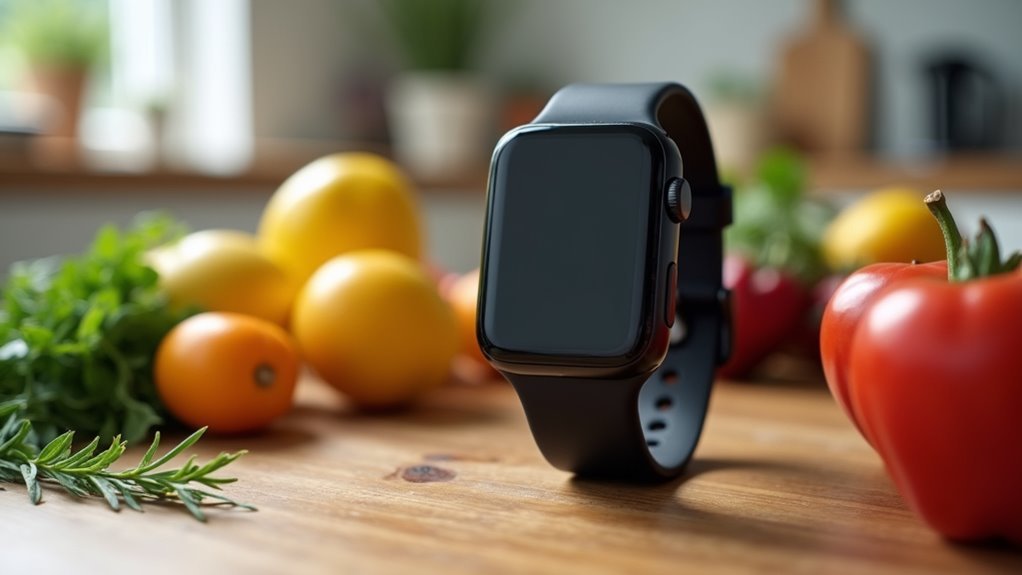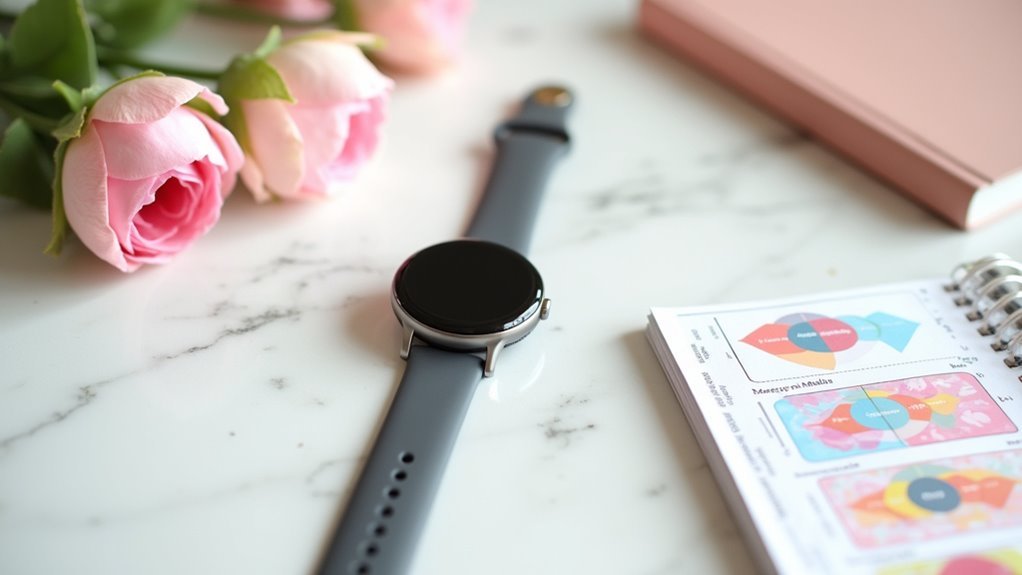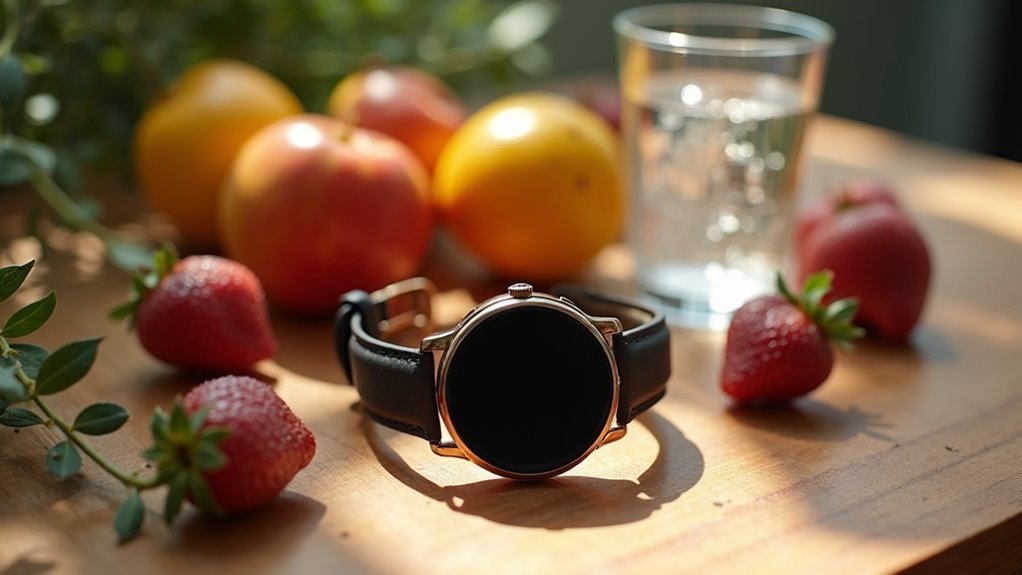You’re experiencing a healthcare revolution where AI-powered trackers make autonomous health decisions by analyzing your menstrual history, lifestyle data, and real-time physiological markers. These systems continuously monitor hormone levels through urine testing, detect cardiovascular risks decades early, and use quantum computing to process your genetic data for personalized treatment plans. They’re breaking cultural barriers by providing anonymous platforms for sensitive discussions while offering culturally sensitive care that traditional healthcare often lacks—and that’s just the beginning.
AI-Powered Autonomous Health Decision Making

As artificial intelligence transforms healthcare, women’s health trackers are revolutionizing how you monitor and manage your reproductive wellness through autonomous decision-making capabilities.
These intelligent systems analyze your menstrual history, lifestyle data, and physiological markers to make real-time health decisions without constant manual input. When irregularities like amenorrhea or abnormal cycle lengths are detected, AI automatically triggers alerts for medical consultation, removing guesswork from your health management.
The technology delivers personalized interventions for stress reduction, mood regulation, and physical activity based on your unique patterns. Machine learning algorithms process demographic, physiological, and psychological data to generate increasingly accurate cycle predictions. As algorithms continuously learn from your data, they refine autonomous recommendations, creating adaptive wellness plans that evolve with your changing health status while optimizing healthcare resources.
Accelerated Diagnostic Capabilities for Female-Specific Conditions
While traditional diagnostic methods for female-specific conditions often rely on periodic clinical visits and subjective symptom reporting, today’s advanced health trackers accelerate detection through continuous, objective monitoring of critical biomarkers.
Advanced health trackers transform women’s healthcare by replacing periodic visits with continuous, objective biomarker monitoring for faster detection.
You’ll benefit from real-time urine hormone testing that tracks estrogen and progesterone levels, while continuous temperature monitoring identifies thyroid dysfunctions and hormonal imbalances.
Wearable ultrasound patches enable frequent at-home breast screening, detecting cysts as small as 0.3cm with image quality rivaling traditional ultrasound. You can screen tissue up to 8cm deep without radiation exposure.
These devices flag persistent cycle abnormalities as PCOS or thyroid markers, enabling earlier medical consultation. Blood tests can now predict cardiovascular disease risk decades in advance, providing unprecedented early warning capabilities for women’s heart health. Data-driven alerts reduce late-stage diagnosis risks while objective metrics supplement clinical evaluations, streamlining your diagnostic pathway.
Advanced Menstrual and Menopausal Symptom Monitoring

Beyond basic period tracking, today’s sophisticated health monitors capture extensive symptom data that transforms how you understand your menstrual and menopausal health patterns.
These apps offer thorough logging features that help you identify trends and potential health issues over time. Healthcare providers increasingly recognize menstrual cycles as vital signs that can aid in earlier detection of various health conditions.
Leading menstrual health apps provide powerful monitoring capabilities:
- Extensive symptom tracking – Monitor over 100 different symptoms including mood, pain, blood flow, and energy levels
- Customizable features – Create personalized symptom tags and use free journaling to record unique experiences
- Pattern recognition – Detect irregular cycles or symptoms that may indicate underlying health conditions
- Educational insights – Gain deeper understanding of reproductive health and physiological changes through data analysis
You’ll develop enhanced health literacy while gaining confidence in managing your reproductive wellness through detailed, personalized tracking data.
Personalized Precision Medicine Through Quantum Computing Integration
When quantum computing merges with women’s health tracking, you’ll experience unprecedented personalization in your healthcare journey. Your genetic data will be processed faster than ever before, enabling precise disease diagnosis and treatment customization specifically for women’s health conditions.
Quantum algorithms will analyze your genomic datasets to identify genetic variants linked to hormonal disorders, reproductive health issues, and female-specific diseases.
You’ll receive optimized treatment plans based on your unique genetic profile, while real-time predictive analytics monitor your disease progression patterns. Healthcare providers are developing hybrid approaches that seamlessly integrate quantum computing capabilities with existing classical systems to enhance diagnostic accuracy.
Your healthcare providers will use quantum-enhanced clinical decision support systems to make data-driven decisions about your care. This integration streamlines your patient experience through improved logistics, optimized resource allocation, and enhanced treatment efficiency, ultimately reducing your healthcare costs while improving outcomes.
Breaking Cultural Barriers in Women’s Health Conversations

Nearly three-quarters of women report feeling dismissed or unheard during medical encounters, revealing how deeply cultural barriers penetrate healthcare settings and silence critical health conversations.
You’ll find that cultural taboos around menstruation, sexual health, and reproductive issues create walls between you and quality care.
When healthcare providers lack cultural intelligence, they can’t understand how illness presents differently across ethnic groups, leaving you misunderstood and undertreated. Limited time for interactions between patients and healthcare providers leads to insufficient conversations, undermining shared decision-making.
Revolutionary women’s health trackers break these barriers by:
- Providing anonymous platforms where you can discuss sensitive topics without judgment
- Offering culturally sensitive educational content tailored to your background
- Connecting you with interpreters and culturally competent healthcare providers
- Empowering you to track and articulate symptoms confidently before medical visits
These tools transform healthcare conversations from dismissive encounters into meaningful dialogues.
Frequently Asked Questions
How Much Do Women’s Health Tracking Apps Typically Cost per Month?
You’ll typically pay $10-18 monthly for women’s health tracking apps. Basic versions are free, but you’ll need premium subscriptions for detailed insights, AI predictions, and advanced features. Annual plans offer better value than monthly payments.
Are Women’s Health Trackers Compatible With Existing Electronic Medical Records Systems?
Yes, you’ll find many women’s health trackers are compatible with existing EHR systems. You can sync devices like Fitbit with platforms, though you’ll need to guarantee proper integration and patient consent for data sharing.
What Happens to My Personal Health Data if the Company Goes Out of Business?
If the company goes out of business, your data might be sold to third parties or abandoned. You don’t typically own your health data, making it difficult to control what happens to it.
Do Insurance Companies Cover Costs for Prescription Digital Therapeutics for Women’s Health?
Insurance coverage for prescription digital therapeutics in women’s health remains limited and inconsistent. You’ll find most private insurers don’t routinely cover these treatments yet, though proposed federal legislation could expand Medicare and Medicaid access.
How Accurate Are At-Home Testing Kits Compared to Traditional Laboratory Tests?
At-home testing kits claim 99% accuracy but you’ll find real-world performance varies. Traditional lab tests offer higher consistency in controlled environments with professional interpretation, while you get convenience and cost savings at home.




Leave a Reply